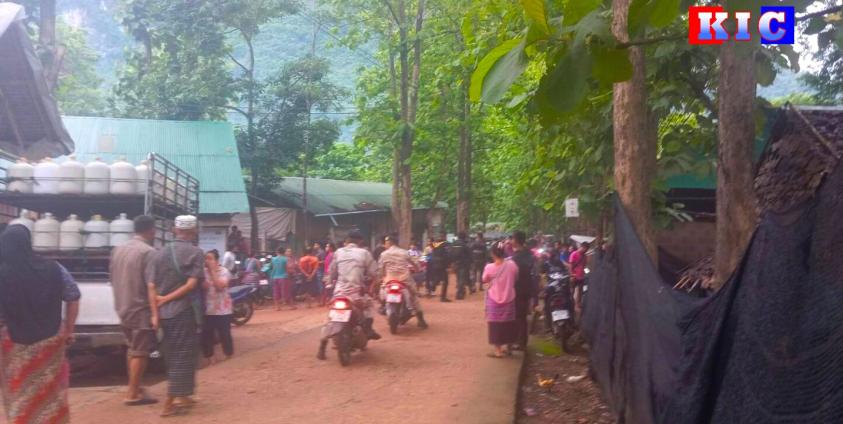With international humanitarian aid cutoff, food supplies to refugee camps along the Thailand-Myanmar border have been suspended since early August. The financial support for health workers aims to restart stalled health services in these camps.
The Tak Province Public Health Department, in collaboration with volunteer organizations and some hospitals, will provide 2,500 THB per month to each of the 80 staff members from three refugee camps in Tak Province: Mae La, Umpiem, and Nupo. This amounts to a total of 200,000 THB per month.
Saw Sunday, head of Mae La camp administration, said he was aware of the planned initiative but had yet to receive detailed information from the relevant department.
“At our Mae La camp, teams from Tha Song Yang Hospital have come to help keep healthcare services running. Mae Ramat Hospital, Mae Tao Clinic, and the Shoklo Malaria Research Unit (SMRU) are also working together on this. Tha Song Yang Hospital is leading the effort. That’s all I know so far. We haven’t heard anything about funding for the health workers in the camps. Right now, we still have enough funds to cover their expenses until the end of August,” he told KIC.
In addition, the Tak Province Public Health Department is currently discussing plans to enable camp residents with serious illnesses to receive treatment at Thai government hospitals outside the camps and to supply necessary medicines to the camps, according to an August 3 announcement by the Thailand-Myanmar Border Administration Center.
A relative confirmed that a patient from Nupo Camp received treatment at a Thai government hospital and said the cost was not very expensive.
“Right now, patients whose conditions can’t be treated in the camp are sent to the hospital. Transfers like this were allowed before, but only using International Rescue Committee (IRC) ambulances. Now, when patients go to the hospital, they only have to pay for the treatment itself—no extra charges. Once the hospital staff know the patient is from the refugee camps, they usually don’t ask for any other fees,” he told KIC.
The Tak Province Social Development and Human Security Department has requested the Thailand Foundation to supply rice and dry rations to camp residents, as aid has been cut off since early August.
Previously, the United States government covered 60 percent of the total costs for food and healthcare in refugee camps along the border. However, since Donald Trump became president, most of that aid funding has been reduced.
The aid cuts have worsened the refugees’ situation, and in mid-July, community-based organizations (CBOs) in the border region appealed to the Thai government to allow refugees to work outside the camps so they can earn a living and live with dignity.
Post Views: 26
